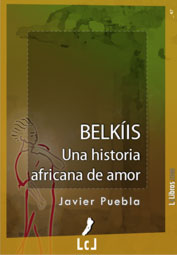| MAMÁ, ha sido traducido al inglés por Cola Franzen, incluido en la antología Spain, los mejores cuentistas españoles, de Whereabout Press, y se utiliza para enseñar español en colegios y universidades norteamericanas. (Si se pinchan -en la versión española original- que aparece a continuación de la americana- las palabras subrayadas puede encontrarse otro cuento -relacionado- de El año del cazador: Lavapiés con Cabeza. | |
|
Mamá Javier Puebla
NIGHT FALLS. Night. And all the telephone booths in Plaza de Lavapiés fill up. The old bolero singer who now sells cocaine in the bars. The Moroccan Mafioso who married a Spanish woman and was transmuted by love into a security guard. The Korean woman who sold you a beer in the deli a short time ago. The forty-something punk who keeps dreaming himself Peter Pan. The cop who’s been patrolling the plaza all afternoon to prevent disturbances. The student of fine arts who is terrified at the thought of having to return to Germany. The scriptwriter who just drank a beer at Pakesteis after wasting a fortune at a peep show on Calle Atocha. The woman who from her balcony spies on couples making love and imagines that she is the girl involved. Each one on the phone, in a booth, in Plaza de Lavapiés. When night falls. Night. And if one could silence the noise of the motors, the murmur of the televisions, and the pleas of those who pray, one could hear, coming out of the mouths glued to the mouthpieces, and in many different languages–Russian, Spanish, Chinese, Arabic, German, Senegalese– one word repeated more often than any other. Mamá.
Translated by Cola Franzen. In: Spain. A Travler’s Literary Companion. Peter Bush and Lisa Dillman Eds. California: Whereabouts, 2003.
Cada uno en un teléfono, en una cabina, de la Plaza de Lavapiés. Cuando cae la noche. La noche. Y si se pudiera apagar el ruido de los motores, el ronroneo de los televisores y el murmullo de las las plegarias de los que rezan, podría escucharse, saliendo de todas las bocas pegadas al auricular, y en muy diferentes idiomas -ruso, español, chino, árabe, alemán, serere -una palabra repetida por encima de las otras: Mamá. |
|
|
|
|
|
|
|
|
|
